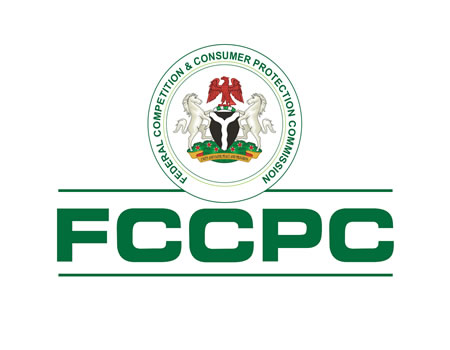
Why We Are After ‘Shylock’ Money Lenders —FCCPC
- Bayo Adetu
- March 14, 2022
- BUSINESS
- 0 Comments
The advent of the COVID 19 pandemic, and other socio-economic discomforts of the past few years, have, no doubt, left gaping holes in the pockets of many Nigerians. The imperatives of survival have, therefore, left not a few with no other alternatives than to source for financial support from wherever such could be mustered.
This, perhaps, explains the rising number of mobile money lenders, presently operating in the nation’s fintech space. But, while some have actually been found to be living up to their financial intermediary role, in the space, many have been described as ‘shylocks’ due to the unconventional and unethical methods they usually resort to, while recovering their money, in the event of a default.
A key attraction, for many Nigerians, is the readiness of these money lending companies, to give out facilities without necessarily ‘spewing’ out those almost impossible conditions of the regular financial institutions.
But, god-sent as this may seem, not a few Nigerians and even relevant authorities, have, however, seen the conducts and mode of operations of some of these companies, as being at variance with good governance and ethical practice.
“Once they give out loans, and there is a default, they device every method, including unwholesome ones, to compel the loanee to pay back. Sometimes they send messages to all the contacts on the loanee’s phone, intimating them of his or her indebtedness to their company, and the need to put pressure on such individual to pay,” complained Mrs Joke Adeshina, who had once been pestered with such correspondence.
According to this seamstress, a relation was once reported to her, and not without a threat of that relation incurring the wrath of the company, if she failed to pay up on time.
“And when I asked why such message should be directed to me when I wasn’t a guarantor to such facility, the representative of the company decided to vent her spleen on me, hurling abuses and even threatening to deal with me. I find this rather disturbing. For instance, how did they know my contact? And, secondly, what made me deserve such harassment when I never knew when this facility was being negotiated?” Adeshina asked rhetorically.
“Sometimes, they even go as far as announcing the ‘death’ of such loanee to the contacts on the loanee’s phones, even while alive,” Johnson, another victim had told Brands & Marketing.
But the Federal Competition and Consumer Protection Commission believes such morbid practices must not be allowed to continue, in the interest of the teeming consumers in that market segment.
For instance, after successfully securing an exparte order from an Abuja Federal High Court, last month, on the need to investigate the activities of some of such lenders, and if found wanting, bring them to book, the agency, in the company of two others — the Independent Corrupt Practices and Other Related Offences Commission (ICPC) and National Information Technology Development Agency, (NITDA) — carried out a raid on about eight of such money lending companies, over the weekend.
They included: Easy Money, Okash, Speedy Cash and Soko Lending Companies, among others, all operating on the popular Opebi Way, in Ikeja.
According to the Executive Vice Chairman of FCCPC, Mr Babatunde Irukera, the decision to carry out the raid was informed by two key concerns of the Commission: the naming and shaming of people’s privacy; and the not-too-ethical methods usually employed by these companies to calculate interests of some of those loans.
Besides, he argued, most of those companies are not non-Nigerian, with no fixed addresses in Nigeria, and are not even licensed to operate in Nigeria.
Curiously, this much was confirmed in the two places the commission had gone to do the enforcement. For instance, at the Leadway Assurance building, on Opebi, housing Okash, Easy Money, Speedy Cash and about three other money lending companies; and another multi-storey building, on the same road, some distance away, housing Soko Money Lending Company, it was discovered that the businesses, which bore different nomenclatures, actually belonged to one person, a Chinese.
Interestingly, while the owner remains at large, some of his Nigerian employees, in a veiled protest of the Commission’s raid, agreed, tacitly, that though the businesses might be unethical in their conduct, they were left with no other alternative than to work there, due to the need to survive.
“I’m a graduate, with very good results. I had looked for a job for more than five years before finding myself here. No Nigerian graduate would love to work in this type of environment. But I’ve got no choice,” stated Mr Agba, an employee of one of the companies.
While the FCCPC’s boss quite empathised with Agba and others in his shoes, he, however, insisted that the employment of a few Nigerians in furtherance of illegal objectives, would not be an excuse to allow that such objective to continue.
Not all money lending companies operate illegally or engage in these unethical practices. While we protect the interests of those, we’ll continue to after those, whose practices are at variance with good corporate governance,” he added. Tribune











